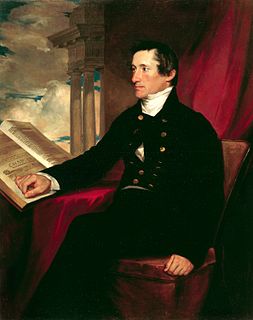
Henry Middleton was a planter and public official from South Carolina. A member of the colonial legislature, during the American Revolution he attended the Continental Congress and served as that body's presiding officer for a few days in 1774. He left Congress before it declared independence. Back in South Carolina, he served as president of the provincial congress and senator in the newly created state government. After his capture by the British in 1780, he accepted defeat and returned to the status of a British subject until the end of the war.

Rawlins Lowndes was an American lawyer, planter and politician who became involved in the patriot cause after election to South Carolina's legislature, although he opposed independence from Great Britain. Lowndes served as president/governor of South Carolina during the American Revolutionary War, and after the war opposed his state's ratification of the U.S. Constitution because it would restrict the trans-Atlantic slave trade. Lowndes also served as a state legislator and mayor of Charleston before his death. Two of his sons, Thomas and William Lowndes, would serve in the U.S. Congress.

Thomas Bee was a delegate to the Second Continental Congress, Lieutenant Governor of South Carolina and a United States District Judge of the United States District Court for the District of South Carolina.

Other notable men have similar names, see: William Drayton (disambiguation).

William Drayton was an American politician, banker, and writer who grew up in Charleston, South Carolina. He was the son of William Drayton, Sr., who served as justice of the Province of East Florida (1765–1780).
William Drayton Sr. was Chief Justice of the British American Province of East Florida and a United States District Judge of the United States District Court for the District of South Carolina.

Percival Drayton was a career United States Navy officer who served during the American Civil War. He commanded naval forces against Confederate forts defended by his brother Thomas F. Drayton in the capture of Port Royal, South Carolina in 1861. He died after the war in Washington, D.C..

Richard Hutson was an American lawyer, judge, and politician from Charleston, South Carolina. In 1778 and 1779 he represented South Carolina as a delegate to the Continental Congress, where he signed the Articles of Confederation. After the British captured Charleston in 1780, he was held as a prisoner at St. Augustine, Florida for a time. After he returned home, he served as the eighth Lieutenant Governor of South Carolina under Governor John Mathews in 1782 and 1783.

Thomas Fenwick Drayton was a planter, politician, railroad president, and military officer from Charleston, South Carolina. He served in the United States Army and then as a brigadier general in the Confederate States Army during the American Civil War.

John Parker IV by birth inherited a spot in South Carolina's aristocracy. He was born to John Parker III and Mary Daniell, granddaughter of Governor Robert Daniell. He married Susannah Middleton, daughter of Henry Middleton and sister of Arthur Middleton. He was American planter of the Hayes Plantation and lawyer from Charleston, South Carolina. He also served as a delegate for South Carolina to the Congress of the Confederation from 1786 to 1788.

Drayton Hall is an 18th-century plantation located on the Ashley River about 15 miles (24 km) northwest of Charleston, South Carolina, and directly across the Ashley River from North Charleston, west of the Ashley in the Lowcountry, sometimes called An outstanding example of Palladian architecture in North America and the only plantation house on the Ashley River to survive intact through both the Revolutionary and Civil wars, it is a National Historic Landmark.

John Ewing Colhoun was a United States Senator and lawyer from South Carolina.

Magnolia Plantation and Gardens is a historic house with gardens located on the Ashley River at 3550 Ashley River Road west of Ashley, Charleston County, South Carolina. It is one of the oldest plantations in the South, and listed on the National Register of Historic Places. Magnolia Plantation is located near Charleston and directly across the Ashley River from North Charleston. The house and gardens are open daily; an admission fee is charged.
Macon Bolling Allen is believed to be the first African American to become a lawyer, argue before a jury, and hold a judicial position in the United States. Allen passed the bar exam in Maine in 1844 and became a Massachusetts Justice of the Peace in 1847. He moved to South Carolina after the American Civil War to practice law and was elected as a judge in 1873 and again in 1876. Following the Reconstruction Era, he moved to Washington, D.C., where he continued practicing law.

Arthur Middleton Manigault was a brigadier general in the Confederate States Army during the American Civil War.

John Drayton was Governor of South Carolina and a United States District Judge of the United States District Court for the District of South Carolina.
Thomas Lee was a United States District Judge of the United States District Court for the District of South Carolina.

John Mathews was an American lawyer from Charleston, South Carolina. He was a delegate to the Continental Congress from 1778 to 1781 where he endorsed the Articles of Confederation on behalf of South Carolina. On his return, he was elected the 33rd Governor of South Carolina, serving a single term in 1782 and 1783.
Drayton is a surname. Notable people with the surname include:














